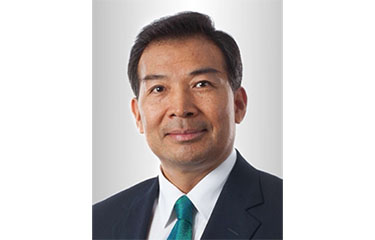The Chinese organizer of a meeting of nations bordering the Indian Ocean has been rebuked by the Maldives for claiming it had sent officials to attend the event.
Organized by the state-run China International Development Cooperation Agency (CIDCA), the inaugural China-Indian Ocean Region Forum brought together representatives of 19 countries in the southwestern Chinese city of Kunming on 21 November, 2022.
But an official statement from the Maldives Ministry of Foreign Affairs states the country had informed Beijing it would not participate in the event and that attendance by “individuals” from the Maldives “does not constitute official representation.”
Countries that officially attended the event include Indonesia, Pakistan, Myanmar, Sri Lanka, Bangladesh, and Iran, as well as the African nations of South Africa, Kenya, Mozambique, Tanzania, Seychelles, Madagascar, Mauritius, and Djibouti. Australia also attended, according to the organizers.
Speaking recently at an unveiling ceremony for its Global Development Promotion Center (GDPC), CIDCA Chairman Luo Zhaohui said China plans to increase its international development assistance. Set up in 2018 under the control of China’s State Council, CIDCA has donated farm, fishing, and medical equipment to a number of developing countries.
One of those receiving CIDCA assistance is Kiribati, which recently transferred diplomatic recognition from Taiwan to China. And CIDCA Vice Chair Zhao Fengtao met recently with Nicaragua Ambassador to China Ian Coronel Kinloch, which was recently granted tariff-free access to China after it switched diplomatic recognition from Taiwan in December 2021.
China’s use of economic leverage in advancing its diplomatic agenda was recently criticized by the Canadian government. Canada’s new Indo-Pacific strategy paper, released 27 November, terms China "an increasingly disruptive global power" that must be contained. In response, a Chinese government spokesperson termed Western efforts to interfere with its international diplomacy a “true disruptive force to global peace, security, and development.”
The split between China and the West was further highlighted recently at the COP27 climate summit in Egypt, when Beijing declined to contribute to a loss and damage fund for developing nations faced with climate change challenges. China pointed out that a 1992 United Nations classification identified the country as a developing nation, meaning it was entitled to such payments itself, even though it is currently the world’s leading emitter of greenhouse gases.
Likewise, the CIDCA has not committed to paying for climate change adaption in the developing nations it supports, though the country has shared renewable energy technology. At another event organized recently by the CIDCA in Beijing, Kiribati’s China Ambassador David Ateti Teaabo said climate change and plastic pollution represented an existential challenge to his country, especially as it put the country’s food security at risk.
“Even if some fishing harvests can be obtained now, the difficulty has become even greater [due to climate change and pollution],” he said.
Photo courtesy of China International Development Cooperation Agency







